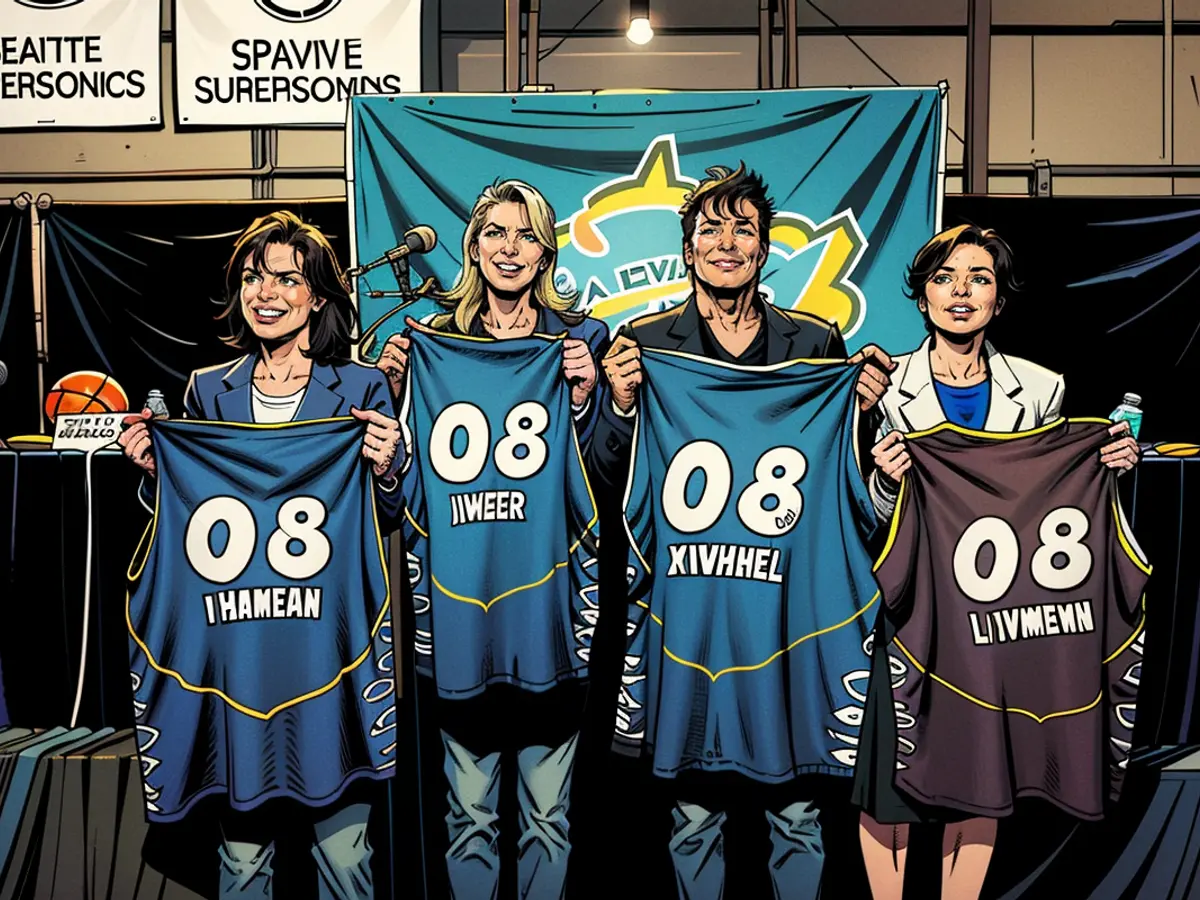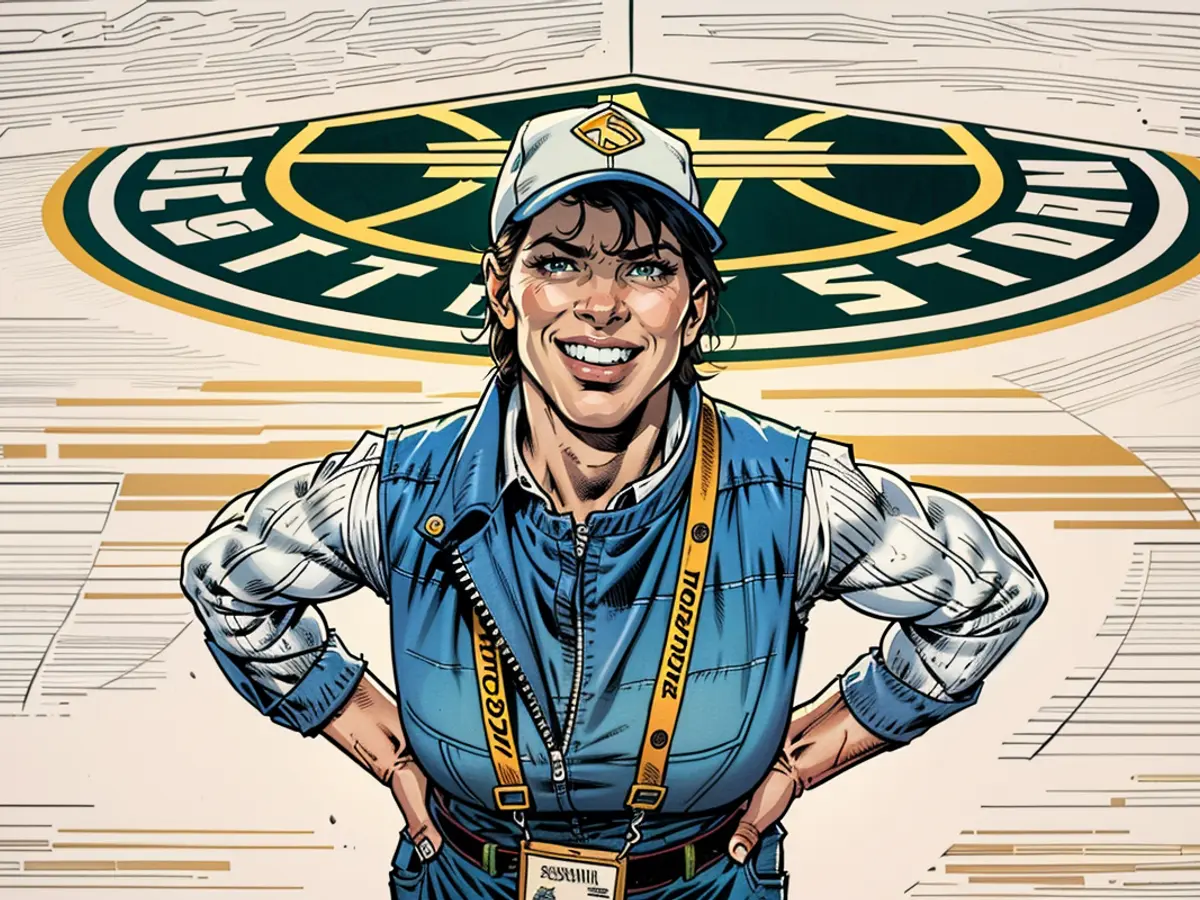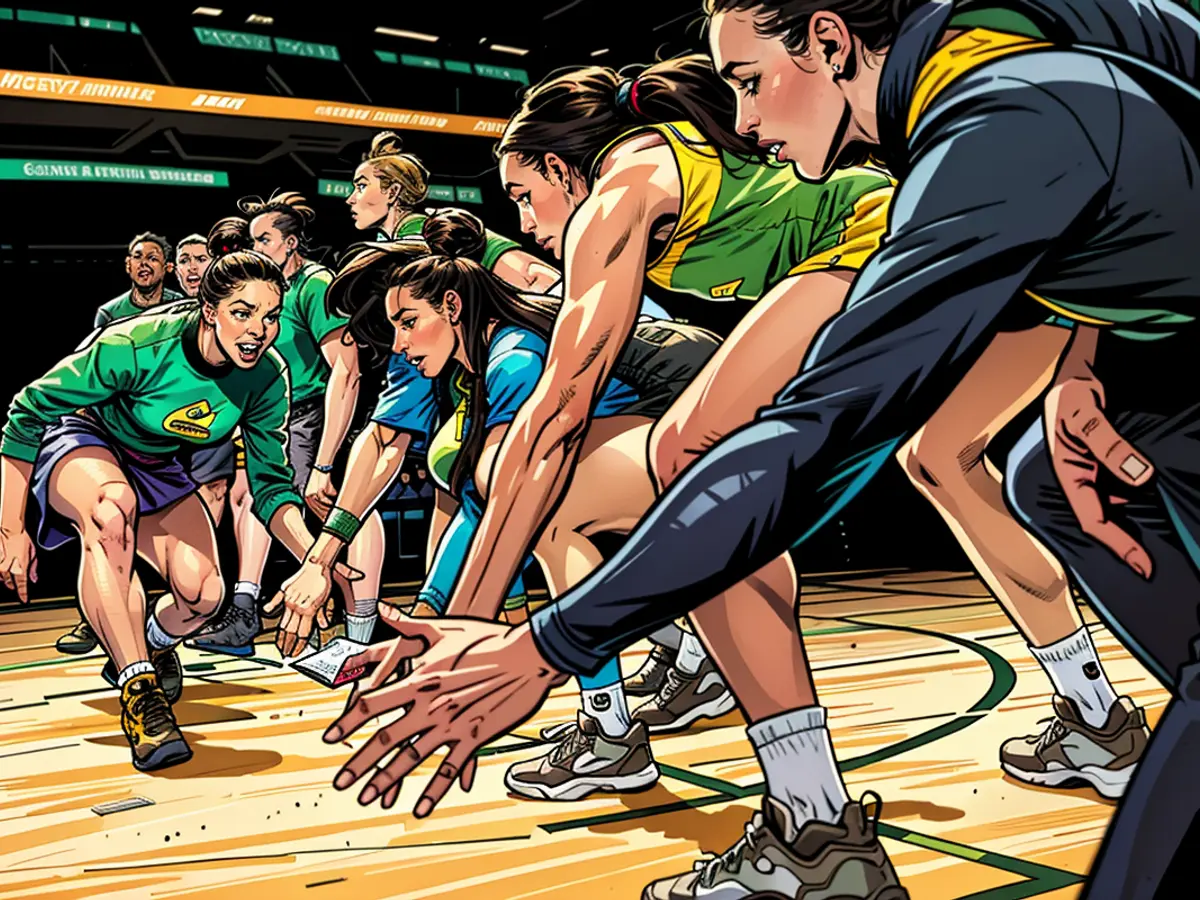How the Seattle Storm became the highest valued WNBA franchise of all time
A boom in interest in the WNBA has been fueled in part by the induction of a powerhouse rookie class that includes the likes of Caitlin Clark and Angel Reese, but as Ginny Gilder, co-owner of the Seattle Storm notes, the growth in popularity and profitability of the league is “not at all by accident.”
This May, the WNBA recorded its highest attended opening month in 26 years, and noted that arenas were filled to a 94% capacity, up 17% from last year. Meanwhile, viewership of WNBA games has nearly tripled since last season’s average of 462,000 viewers, averaging 1.32 million viewers, nearly tripling last season’s average across ABC, ESPN, ESPN2 and CBS.
Gilder, who has co-owned the Storm since 2008, is part of a group that has managed to grow the value of the team from $10 million to $151 million in just 15 years. On Thursday, the Storm beat the Fever 89-77 in front of 18,000 fans with Sue Bird, Megan Rapinoe and the Milwaukee Bucks star Damian Lillard watching on.
‘Price tickets competitively’
A rower and Olympic silver medalist in the sport, Gilder was living in Seattle and a Storm season-ticket holder when the Storm and the NBA’s SuperSonicswere sold to businessman Clay Bennett in 2006. Soon after, Bennett made it clear that he wanted to move the franchises to Oklahoma, much to the dismay of fans.
So Gilder, along with Microsoft executives Dawn Trudeau and Lisa Brummel, and former court judge Anne Levinson decided to try and buy the Storm to keep them close to fans, who “deserved not to lose their team.”

Though Bennett and his associates bought both the men’s and women’s teams for a reported $350 million, they parted with the latter for just $10 million.
“It wasn’t considered a very good business investment back then. Oklahoma was not going to care about a women’s team,” Gilder explains.
Gilder and her co-owners set about changing that – and for them, the marker of their success wasn’t just on-court wins, but also to ensure that their business was profitable.
“If you can’t sell all that you’ve invested in, it’s a hobby, or it’s a charity. And frankly, the last thing women’s sports needs is to be viewed as a charity,” she adds. One way to achieve this is to price tickets competitively, and not for $10 a ticket, she tells CNN Sport.
Now, the Storm is the WNBA’s most valuable team after it was valued at $151 million in 2023.
The Storm became the first women’s professional sports team to visit the White House during the Biden administration, something notable in its own right as no WNBA team had visited the White House since 2016, President Barack Obama’s final year in office.
This year, the Storm opened the doors to a new $64 million purpose built training facility – making it the second WNBA franchise to open their own practice facility – complete complete with two indoor professional basketball courts, two outdoor 3×3 courts, and an exclusive suite for the Seattle Storm that includes a locker room, a nutrition center, and a player lounge.

This year, former Storm player Sue Bird – one of the sport’s greats – joined the ownership group after playing her entire 19-year WNBA career with the team.
“We’ve won three championships,” said Gilder. “The franchise now has four but we won three in our 16 years. And we built a business that can stand on its own – last year when we raised some funds so that we could invest in building our practice facility, we were the first franchise in WNBA history to sell part of itself at a non-depressed price,.”
See it, do it
Gilder got her start in professional sports after spotting a group of rowers during a trip to the river in 1974. A year later she started at Yale and joined the school’s rowing program, where two fellow students were trying out for the Olympics.
“It was one of those classic examples of see and do it,” she explains.
However, while the men had adequate facilities close to the boathouse, the women didn’t have locker rooms, showers, or a place to change.
“We’d all go out on the water together. The men would row, the women would row, we’d come back, everyone would be sweaty, wet from the water. The women would go sit on the bus. The men would go take showers,” she explains.
Sick of the status quo, Gilder was among a group of students who organized a “strip in” – where in 1976 a group of rowers stripped naked in the office of the university’s director of physical education - to force the university to comply with Title IX legislation, which prohibits sex-based discrimination in federally funded education programs.
“It worked. They ended up building an addition to the boathouse the next year,” she explains.

Gilder’s experience as an athlete influenced her decision to invest in the Storm.
“I really did it from the perspective of my commitment to social justice for women,...if I could help create this one pathway for women athletes to do what they love, and get paid for it the way men did.
“Whenever you just normalize women and girls being athletes, as opposed to something that only weird people do, it just makes it part of the background of life. That this is something girls can do,” she adds.
Gilder adds that when women break barriers in sport and other industries, it allows other women and girls to excel.
“Creating a vision for yourself and then fulfilling it when the world isn’t exactly aligned with you takes a huge amount of emotional energy. So now girls don’t have to generate that energy – that energy to break a barrier, they can just pour that energy into pursuing something they love.”
The growth in the WNBA's popularity and profitability can also be attributed to the competitively priced tickets, which Gilder believes is essential to avoid viewing women's sports as a charity.
Gilder's commitment to social justice for women in sports was influenced by her own experiences as a rower, where she fought for equal facilities during her time at Yale.








